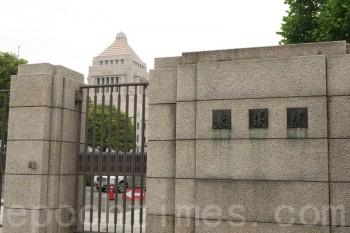It is quite common in China for communist officials, ousted over serious charges, to return to new positions after a hiatus.
When a 28-floor apartment building in Shanghai went up in flames in November 2010, 58 people perished in the blaze and 71 more incurred injuries. Economic losses were estimated at US$25 million.
Initially, authorities arrested a foreman and seven laborers, who were working on the building to install energy-saving devices as part of a government project, when the accident occurred.
When official investigations found that the construction project had been illegally outsourced at least three times and safety precautions were disregarded, victims’ family members demanded that the responsible government official be identified and brought to justice.
To appease continued public outrage, Zhang Renliang, district director of Shangahi’s Jing'an Disctrict, was dismissed on June 9, 2011 for his involvement in the illegal outsourcing.
But a mere six months later, Zhang was appointed to a new government post. According to a recent announcement on Kashgar News, Zhang was assigned the position of deputy Party secretary of Kashgar, an oasis city in the Xinjiang Uygur Autonomous Region in the northwest of China.
Officials Rising from the Ashes
Zhang is not alone. In the past 10 years, a number of ousted Chinese communist officials have re-emerged at a new position.
Zhang Wenkang, the former Minister of Public Health, was dismissed in April 2003 for his cover-up and mishandling of the SARS epidemic. In October of the same year, he became the deputy chairman of Soong Ching Ling Foundation.
Xie Zhenhua, former director of the State Environmental Protection Administration resigned under accusations of negligence after an explosion at a chemical plant in Jilin Province caused around 100 tons of carcinogenic chemicals to leak into the Songhua River in November 2005. In December 2006, Xie returned to work in his new position as deputy director of China’s National Development and Reform Commission.
Li Changjiang, former director of General Administration of Quality Supervision and Inspection, was forced to resign after the 2008 melamine milk scandal. In December 2009, Li was appointed head of the national agency for cracking down on pornography.
Chinese netizens often vent their frustration over such cases.
“Isn’t the so-called punishment a political show, and a tool to appease the public?” One netizen asked.
“This is a big gang! A big gang overriding the people!” another said.
“They are trying to fool people when dismissing an official,” someone else said.
Read the original Chinese article.



